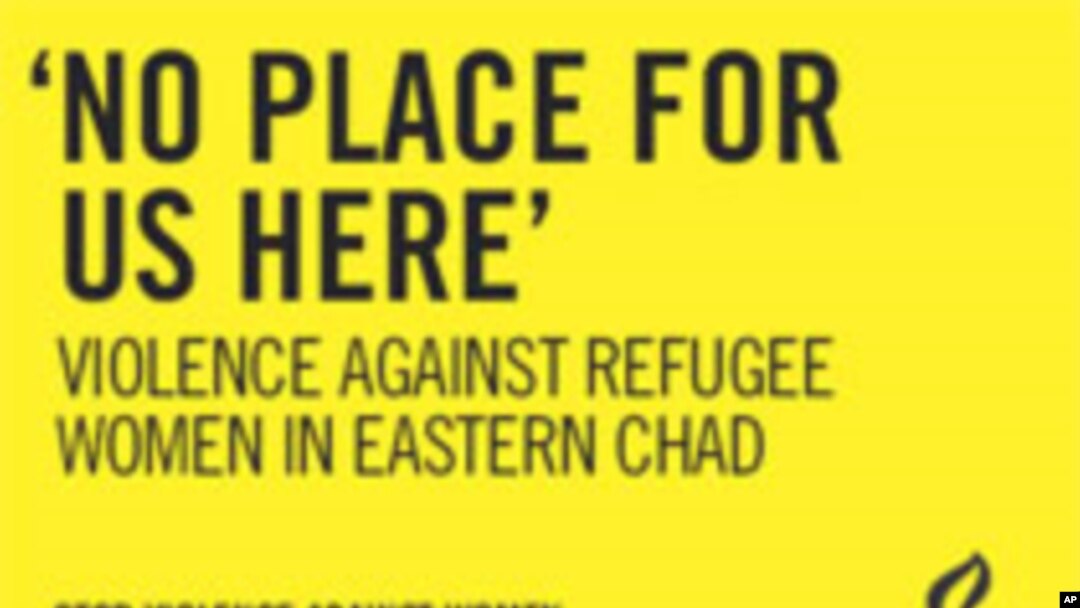Many women and girls who fled Darfur to escape rape and other violence are facing similar attacks in eastern Chad. And those are taking place both in and outside of refugee camps.
That's the finding of a new report from Amnesty International called "No Place for Us Here." It estimates over the past six years, more than 140,000 Darfuri women and girls have gone to Chad.
Amnesty researcher Rania Rajji was part of a mission the human rights organization sent eastern Chad during April and May of this year. While she was there, armed groups attacked the area.
"There was a state of lawlessness…a lot of banditry. And there was continuing violence against refugee women and girls," she says.
Women, who leave the camps to collect firewood and water or to visit relatives, are often targets.
"They are attacked by either bandits or men from villages or unknown individuals and a lot of them are victims of rape. And many of these cases are not reported. The perpetrator is never found out or never goes to court," she says.
Such assaults have been going for years but security efforts have been unable to stop them.
What about MINURCAT?
<!-- IMAGE -->"The situation in eastern Chad in general is very delicate. The security situation is veryprecarious. The UN…armed mission there, MINURCAT, (is) not able so far to cover all the areas. Even the human rights units…don't have access to all the camps, especially the internally displaced camps," she says.
Many Chadians themselves have been uprooted by the violence in the east and have sought"There is a plan to start patrols to protect women next year," she says. In the meantime, women are very vulnerable.
"It is quite impossible, like it is…in Darfur, to…control the path that the women might take. The patrols will be over certain areas, but the cases of rape or assault are very individual. Sometimes the women get out in groups…to protect themselves and still they do get raped out there," she says.
Violence in the camps, as well
"Yes, that is a big problem. What we witnessed ourselves when the armed groups attacked…is that people are scared of banditry…. Because the members of the armed groups turn into bandits and they often go through the camps," she says.
Domestic violence is also a growing problem, arising from the fact that many men in the camps do not have jobs.
Also, she says, "We were able to take testimony from these women…where these women…had indecent proposals by teachers at school. So the girls were not sent to school any longer or girls were raped inside the camp by an inhabitant of the camp or sometimes even workers in NGOs operating inside these camps."
Lack of camp security
"The problem remains the security in general. That right now, the east of Chad is abandoned and the MINURCAT is not able to provide a proactive protection. Patrols are not enough."
A Chadian police force known as DIS was formed to try to improve security in eastern Chad. However, Rajji says, "This has also a lot of problems. They face a lack of equipment, a lack of men."
The Amnesty International researcher says it is a "societal taboo" for Darfuri women to speak about rape.
"It means they have no access to health facilities or to the services they need once they are raped,' she says.
The Amnesty report makes a number of recommendations, including improving and respecting women's rights of equality.
"The cases of sexual assault are reported and are taken to court. That they are investigated properly and they (perpetrators) are punished," she says.
The report recommends raising women's awareness about their right to report rape and sexual assault and to have their cases investigated. It also calls for increased international support for MINURCAT, so it can increase its security patrols around the camps.
<!-- IMAGE -->


